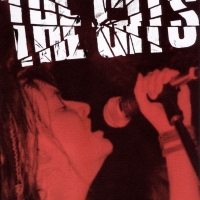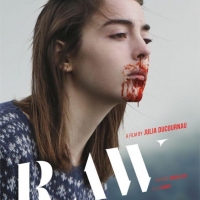A man believed to be responsible for the 1993 killing of Mia Zapata, singer for early ’90s Seattle punks the Gits, may pay for his crime after nearly a decade.
Jesus C. Mezquia, 48, was arrested late Friday in the Miami area and charged with first-degree murder, according to a Miami-Dade County police spokesperson.
DNA tests linked Mezquia, a resident of Marathon, Florida, to the crime scene and prompted his arrest.
Zapata’s body was found raped and beaten on July 7, 1993, near the Capitol Hill neighborhood of Seattle. The drawstrings of her Gits sweatshirt were used to strangle her to death. Zapata was 27 years old.
Seattle police submitted evidence to crime labs for genetic testing last year, but it yielded no matches. Only after information on Mezquia, a convicted felon, was entered into the National DNA Index System in December was a parallel drawn. Subsequent evidence also placed Mezquia in the Seattle area at the time of the killing.
Mezquia is being held without bond in Miami-Dade County Jail, where he is contesting his extradition to Seattle, according to a spokesperson from the Florida state attorney’s office. A court hearing on the matter has been set for February 12, and a public defender has been appointed to handle the extradition case. Since Mezquia wants his case to be heard in Florida and not Seattle, the case could take several months before going to trial.
“I was stunned,” Gits drummer Steve Moriarty said of his reaction to hearing the news of Mezquia’s arrest. “I can’t say that I felt closure, because it’s not going to bring Mia back, but I did listen to the Gits albums really loud, and that felt good.
“On the home front, it will really help in that I won’t have to worry whether my neighbor or friends had anything to do with the murder,” he added. “We can stop looking over our shoulders and wonder who it might be.”
The Gits were part of the burgeoning grunge/punk scene in the Pacific Northwest, but were closer in sound and spirit to riot grrl bands such as Minneapolis’ Babes in Toyland, Los Angeles’ L7, and Bikini Kill, from Olympia, Washington. Where the grunge groups augmented their punk sound with a heavy metal core, the riot grrls eschewed the rock bombast in favor of a fervent style and political and feminist lyrics.
Zapata, Moriarty, guitarist Joe Spleen and bassist Matt Dresdner formed the Gits in 1986 in Ohio before relocating to Seattle, where they released their debut album, Frenching the Bully, in 1992. Zapata died before the band could finish its follow-up, Enter: The Conquering Chicken, which was posthumously released in March 1994.
Zapata’s death serves as a reminder of how far the feminist movement still needs to progress, since harboring ideals and an outward image of equality offered little protection against thuggish physical violence. With her murdered friend in mind, 7 Year Bitch drummer Valerie Agnew and visual artist Stacey Westcott immediately founded Home Alive, a Seattle-based organization that offers affordable self-defense classes and provides public education and awareness of violence against women.
“Remnants of the pain and rage felt after the murder of Mia Zapata have resurfaced with news of the arrest of her suspected attacker,” read a statement from the organization. “For the individuals involved with Home Alive, past and present, the news provides some answers to devastating questions, and a renewed hope for justice. … For Home Alive … it only reinforces our commitment to fighting violence and hate in our community.”
Musicians and artists from Seattle, especially, but also those elsewhere, rallied immediately following Zapata’s death. Acts such as Pearl Jam, Soundgarden, Nirvana, the Posies and Bratmobile staged benefit concerts that raised money to hire a private investigator to find Zapata’s killer. Collectively, they raised approximately $70,000, which paid the PI for three years. Eventually the bills became insurmountable. Now that Mezquia has been arrested, the remaining small sum will be given to women’s groups.
Among those also spearheading the activism, Joan Jett and Bikini Kill frontwoman Kathleen Hanna wrote the track “Go Home,” a song about a late-night stalker, with Zapata in mind. The song was recorded with the surviving members of the Gits, and a video “dedicated to the memory of Mia Zapata” was shot in England by director Julian Temple, with Jett playing a woman being stalked who turns the tables on her predator.
The song prompted a benefit concert by Jett and the surviving Gits, who called themselves Evil Stig (“Live Gits” backward). Then-heads of Warner Bros. Records, Mo Ostin and Lenny Waronker, funded the recording of the concert and released the album in 1995.
“I was surprised and elated to learn that Mia Zapata’s killer has finally been caught,” Jett said in a statement. “I’m thrilled for the Gits, Mia’s family and the entire Seattle music community, which showed incredible solidarity in continuing efforts to find the maniac who murdered her. I congratulate the police who found a way to solve this crime after so many years. In recording her songs, I became aware of Mia’s brilliance as an artist and writer.”
Partly due to Jett’s persistence, Zapata’s open murder case was profiled on the television programs “America’s Most Wanted” and “Unsolved Mysteries.”
Home Alive released a benefit double album in 1996, Home Alive: The Art of Self Defense, featuring “Go Home” and contributions from Pearl Jam, Nirvana, Soundgarden, the Fastbacks, Dead Kennedys singer Jello Biafra, and X’s Exene Cervenka, among its 44 tracks.
Flying Side Kick, Home Alive’s second album, featuring cuts from socially conscious West Coast punks such as the Need, Black Halos and Zen Guerrillas, among others, was released in 2001.






